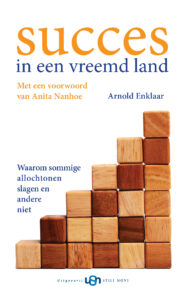Does there exist a national culture?
Moreover, it is a misunderstanding to think that culture consists only of concrete views or behaviours. That’s just the outside, our culture has also a deeper layer. Deep within us we harbor a number of tacit assumptions, moral principles, ideals: values, things that we take for granted and so normal that we rarely think about them. But those values do determine our view of the world and our judgment of whether something is good or bad, whether something is necessary or not. Our opinions and behaviour are often dictated by our values. We (almost) all share the same values with our fellow countrymen. This means that we understand very well what someone else means, even if we do not always agree. This common culture is very much like our common language which we share with the people in our country. We can understand each other rather well by it, even though we speak it with a different accent and in a different style, and in this language we can express very different opinions.
Does our culture change?
If you look at the concrete views, preferences and behavior of for example the Dutch, they have clearly been subject to change over the years. Society, economy, technology, political conditions and many other factors can change and in response our attitudes and behavior may change. In the period from 1960-1980, many social relationships and views in the Netherlands changed significantly. In my book on Dutch culture, however, I showed that the Dutch values have not changed at all during that period. Anyone who equates culture with dominant social views and overlooks the deeper layer of values, is inclined to overestimate the change of a culture. On the surface, attitudes, perceptions, norms, and behaviors can change. In some periods this is faster and in others much slower. But the deeper layer of our values does not change just like that. The current Dutch values are still the same as those in 17th century Holland. However, we continue to interpret them in a new way that suits the changed social circumstances.




